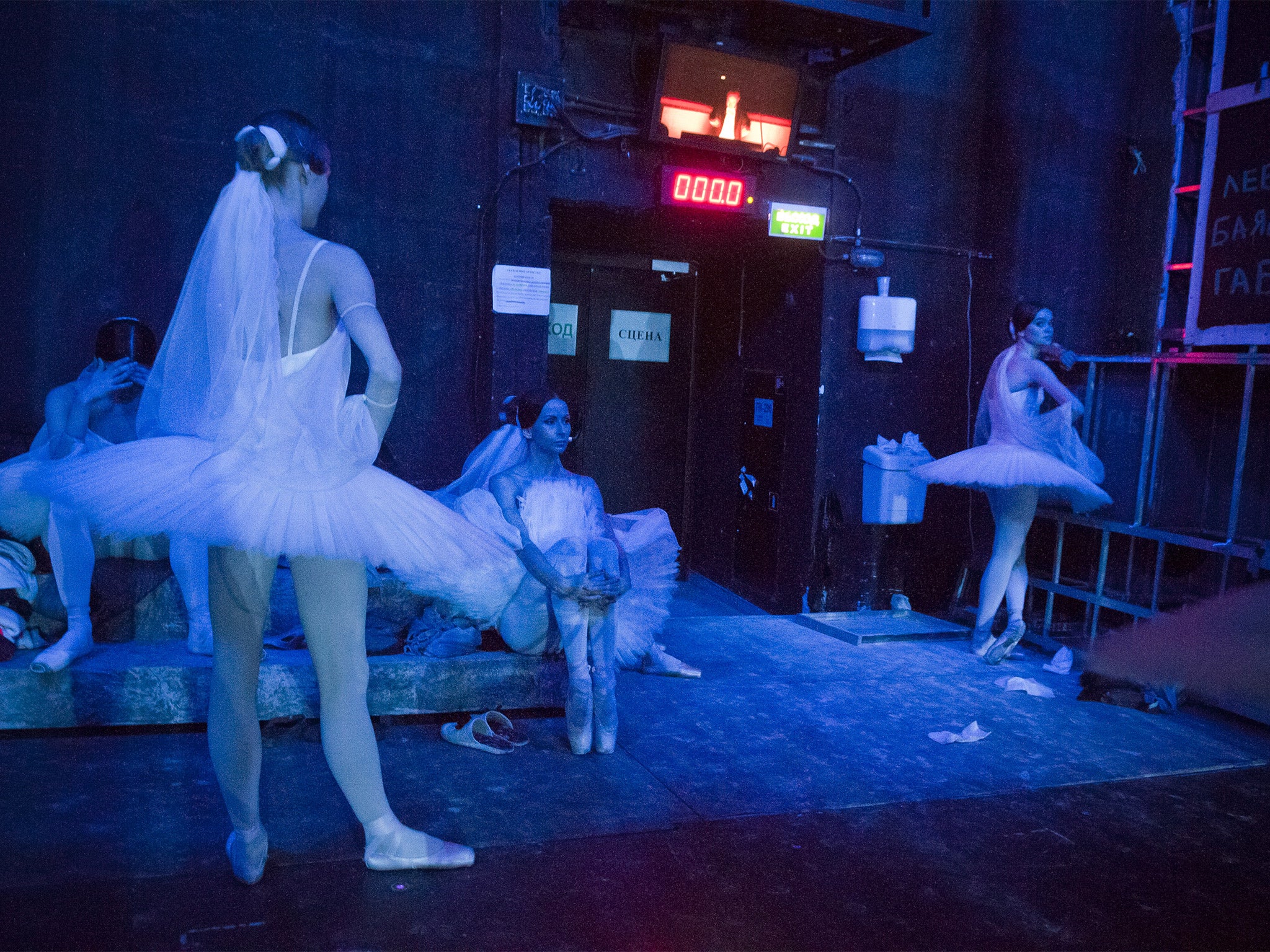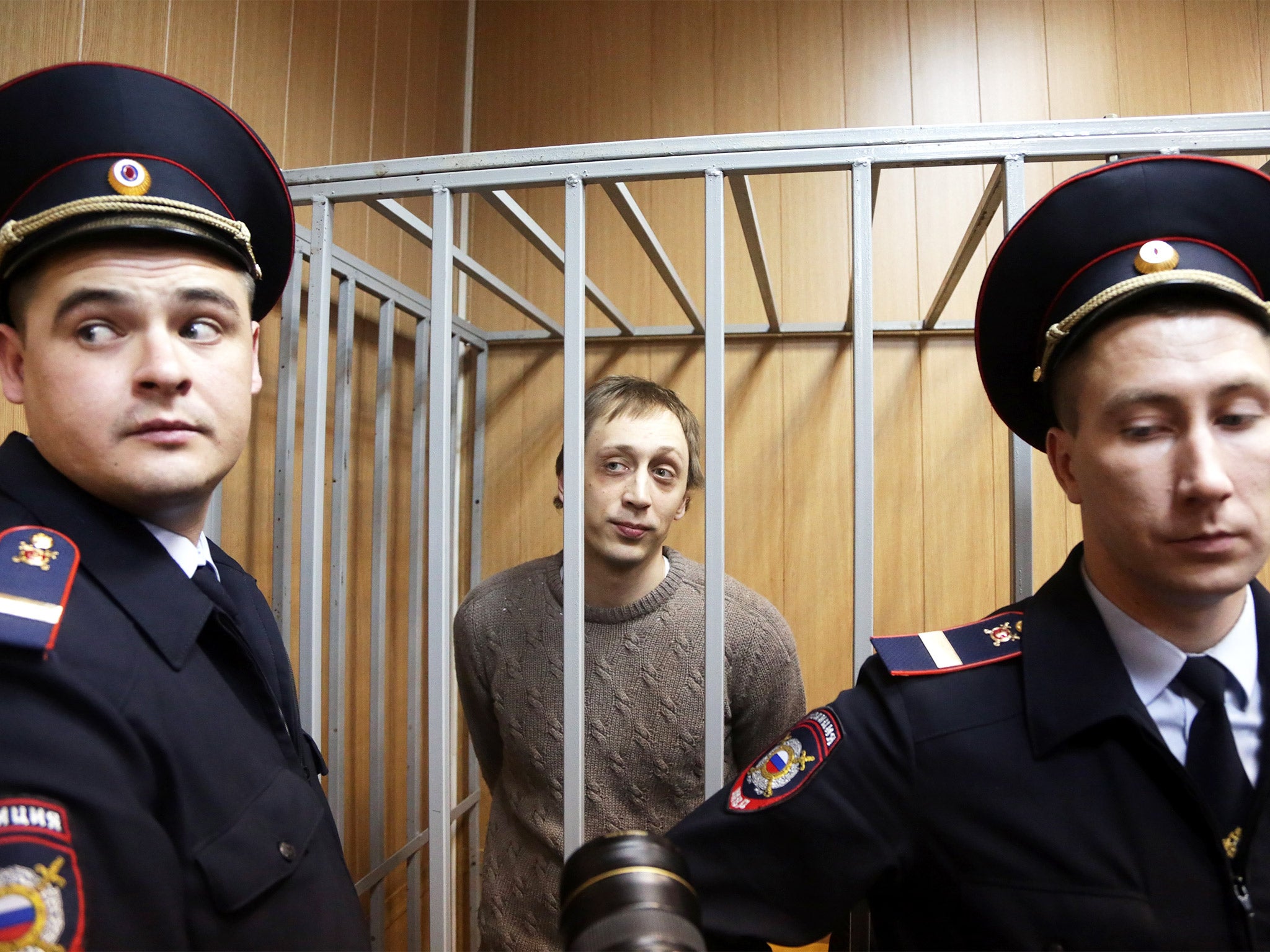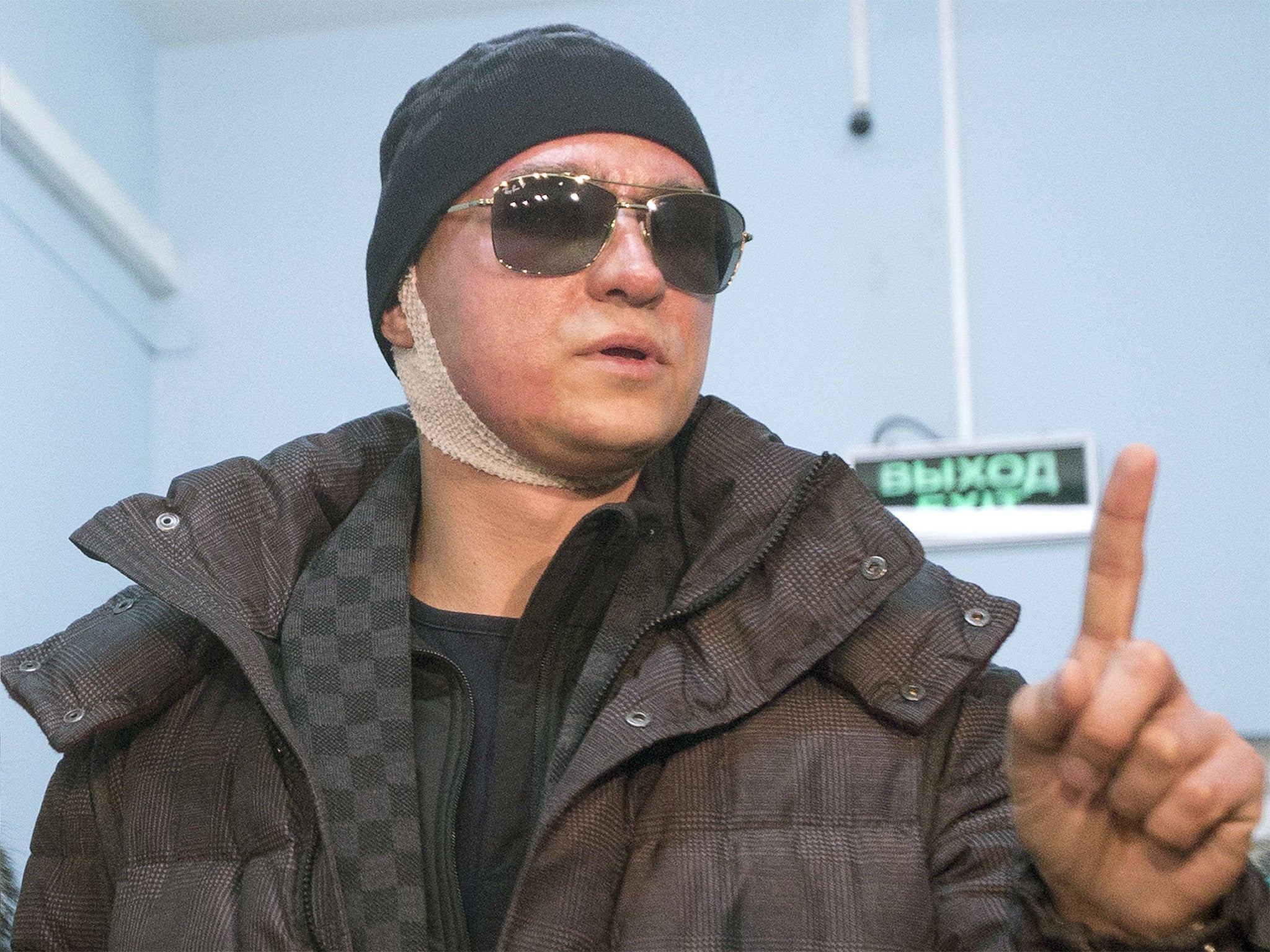Bolshoi Babylon documents the backstage dramas at the troubled ballet
The new film exposes the events leading up to the acid attack scandal that rocked the world-renowned company. Its director reveals more to Geoffrey Macnab

It was one of the most shocking incidents in dance history. In January 2013, Sergei Filin, the director of the world-renowned Bolshoi Ballet and a former principal dancer there, had acid thrown in his face.
"At about 11pm, I was returning home. By the gate to my house, I was attacked. My face was seriously burnt. The skin was damaged as were my eyes," Filin later recalled of an incident that came close to blinding him.
Who could have committed such an assault and why? "It was such an unusual crime and acid, even by the standards of the Russian underworld, is such an unusual weapon," British director Nick Read says of the attack. He was already preparing his feature documentary Bolshoi Babylon when he learned that Pavel V Dmitrichenko (a dancer at the Bolshoi) had been arrested for the crime.
The very title suggests that the film will be a study in scandal – but that is only partly the case. Bolshoi Babylon offers an intimate and very revealing behind-the-scenes portrait of what is still the most famous ballet troupe in the world at a time when the Bolshoi was under huge pressure.
One of Read's interviewees points out that there aren't many "brands that represent Russia. One is the Bolshoi Theatre. Another is the Kalashnikov… but that's now out of date. New guns have appeared. But the Bolshoi endures. It still represents Russia for sure."
The Bolshoi is seen by some as a microcosm of the Russian state itself. The building is located in the heart of Moscow, just a few hundred metres away from the Kremlin itself. Politicians take an intense interest in how it is perceived.
That was why there was such anguish and recrimination within the Bolshoi about the very public attack on one of its most celebrated representatives.
Read freely admits he was no ballet expert when he began work on the documentary. ("I don't know a pas de deux from a petit four.") Nonetheless, together with his Moscow-based producer Mark Franchetti, he managed to win the trust of Vladimir Urin, who was made general director of the Bolshoi Ballet in the wake of the Filin attack. Urin's job was to clean the stables. He was a government-appointed bureaucrat but one who turned out to be surprisingly open to the British director. "He [Urin] said as long as you are fair, you can come in."
Relations between Urin and Filin were on glacial side of frosty. They had worked together several years before at the Stanislavsky and Nemirovich-Danchenko Theatre but Urin had felt badly let down when Filin quit his post to go back to the Bolshoi.

Watch Apple TV+ free for 7 day
New subscribers only. £9.99/mo. after free trial. Plan auto-renews until cancelled.
ADVERTISEMENT. If you sign up to this service we will earn commission. This revenue helps to fund journalism across The Independent.

Watch Apple TV+ free for 7 day
New subscribers only. £9.99/mo. after free trial. Plan auto-renews until cancelled.
ADVERTISEMENT. If you sign up to this service we will earn commission. This revenue helps to fund journalism across The Independent.
"When he (Filin) was offered the job at the Bolshoi, I think he left without really giving any sort of notice. He left in a real rush and then proceeded to poach some of the dancers from the Stanislavsky Theatre. Urin took it as a personal slight and felt it was a personal betrayal."
In the film, Filiun himself acknowledges he was a "traitor" to Urin.

In spite of their "past history," Urin was persuaded (against his own family's wishes) to take on the management of the Bolshoi. At that point, Filin was still absent, being treated for his injuries in Germany. When Filin returned halfway through the season, it was apparent that there were still tensions between him and Urin. The documentary features footage of a heated meeting in which Urin makes it clear that he expects transparency and an end to the "feuding and backstabbing" that had seemingly taken place prior to the attack on Filin.
"As the film makes clear, Filin was seen as a very evasive and divisive character who liked to crowd a clique of loyalists around him to whom he would award the best parts. Many of the dancers were very aggrieved as they felt they were not being promoted or considered on merit," Read observes.
Even when Filin returned to the Bolshoi after the attack, he aggrieved some members of the troupe by having a personal bodyguard with him at almost all times. This was taken to imply that he still felt under threat in the building, from his own colleagues.
In the documentary, we hear Filin's attacker, Dmitrichenko, speaking from behind bars, telling the news media that Filin "surrounded himself with people who wouldn't contradict him.
"In terms of the allegations, we had to tread very lightly," Read says. He points out that the film-makers found no evidence of sexual impropriety or of corruption in the form of bribery, as had been alleged by Dmitrichenko in court.
There may have been rumours about venality and favouritism but they were very hard to corroborate. Besides, the film is intended as a portrait of the ballet company, not as a character study of Filin or as some veiled satire about corruption within Russia as a whole.
Much of the fascination here lies in Read's vérité-style footage of the lives of the dancers. They are at the absolute peak of their profession but still have everyday issues to deal with. We learn what it is like being both a ballerina and a single mum without proper childcare and how the dancers are always fretting about injury, ageing and their status within the company.
"Some of the questions we were trying to answer was what made the Bolshoi unique. The simple answer to that is the people in it. Everyone, from the usher to the director, has a reverence for the stage. We wanted to dig deeper into their lives and to understand what really drove them," Read says. "When dancers are selected for the Bolshoi, they're typically handpicked… believing they're the best of the best when they enter the corps de ballet. Then, within a year or two, they learn that it (the Bolshoi) is what the dancers themselves call the graveyard of talent. The reason they call it that is that it is very hard to break out."

Read was no devotee of ballet when he started his film but describes himself now as "definitely a convert". As he filmed between 25 and 30 performances back stage, he was astounded by the "extraordinary physicality" and dedication of the dancers. "I was very interested in capturing them on camera just before they went on stage and in trying to capture that nervous energy."
Ironically, the Filin scandal heightened rather than diminished the international appeal of the Bolshoi. Here was the life of a dance company seemingly just as dramatic as that depicted in Darren Aronofsky's Black Swan.
Some compare the Bolshoi to a vast old liner that just keeps chugging along, whatever squalls it encounters. One of the constant tensions the troupe faces is between its glorious history and its desire to innovate. There is so much drama within the company that no one pays that much attention to what is going on in the outside world. Read points out that he was filming during the height of the Ukrainian crisis but that events in Maidan Square or the Crimea were barely even noticed. "There is only one television in the building, servicing 3,000 people who work there and it is never tuned to the news."
Urin and many of the dancers at the Bolshoi have seen Read's documentary and have praised it for being even-handed and honest.
As for Sergei Filin (whose contract at the Bolshoi will shortly end), Read is yet to discover the acid-scarred maestro's response to the film.
"Everybody in the film, Urin and all the key dancers, have seen the film but the one person who refuses to acknowledge our emails – we've got no idea whether he's seen it let alone what he thinks – is Filin."
'Bolshoi Babylon' is released on 8 January. The Bolshoi Ballet season at the Royal Opera House, London, runs from 25 July to 13 August
Join our commenting forum
Join thought-provoking conversations, follow other Independent readers and see their replies
Comments
Bookmark popover
Removed from bookmarks